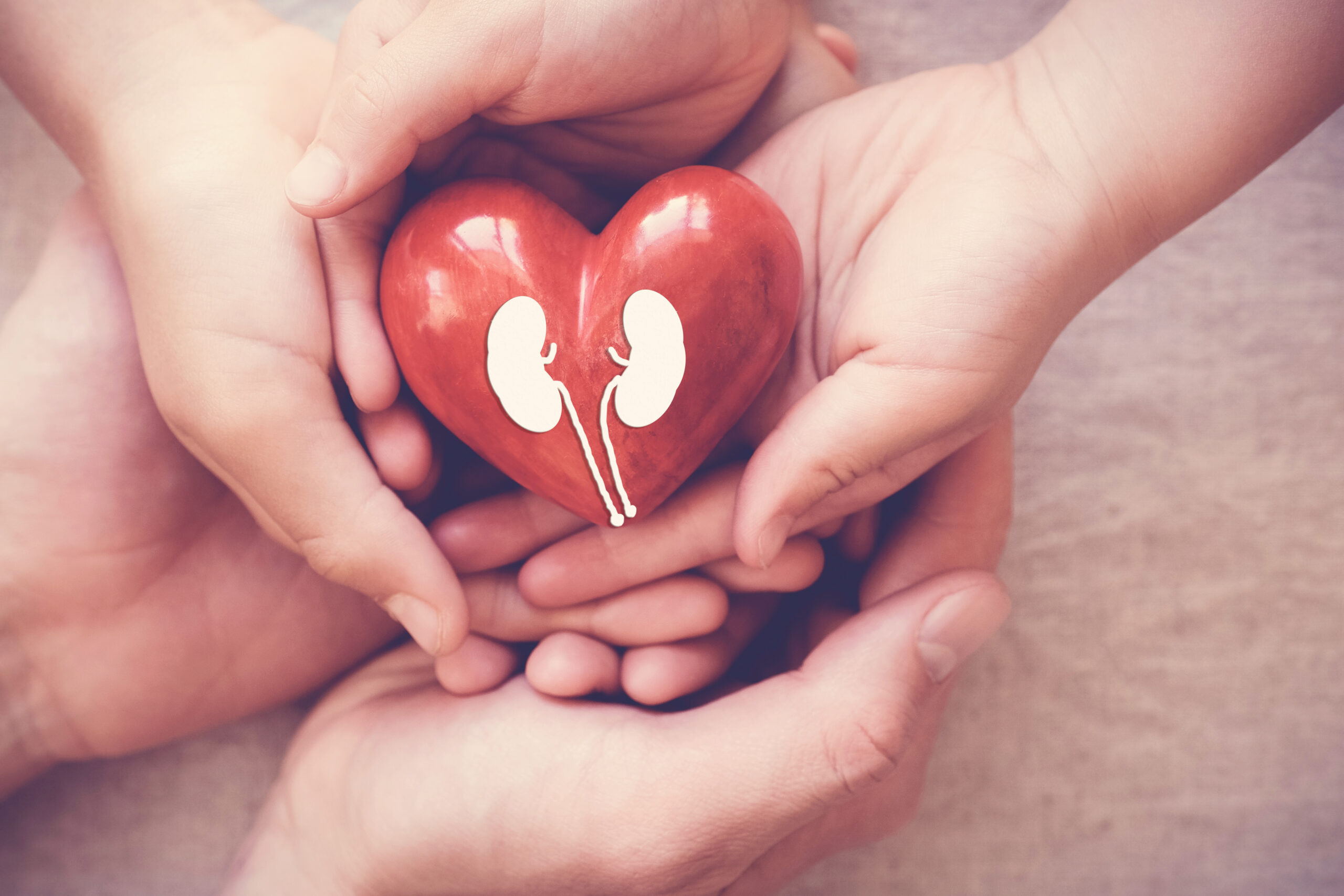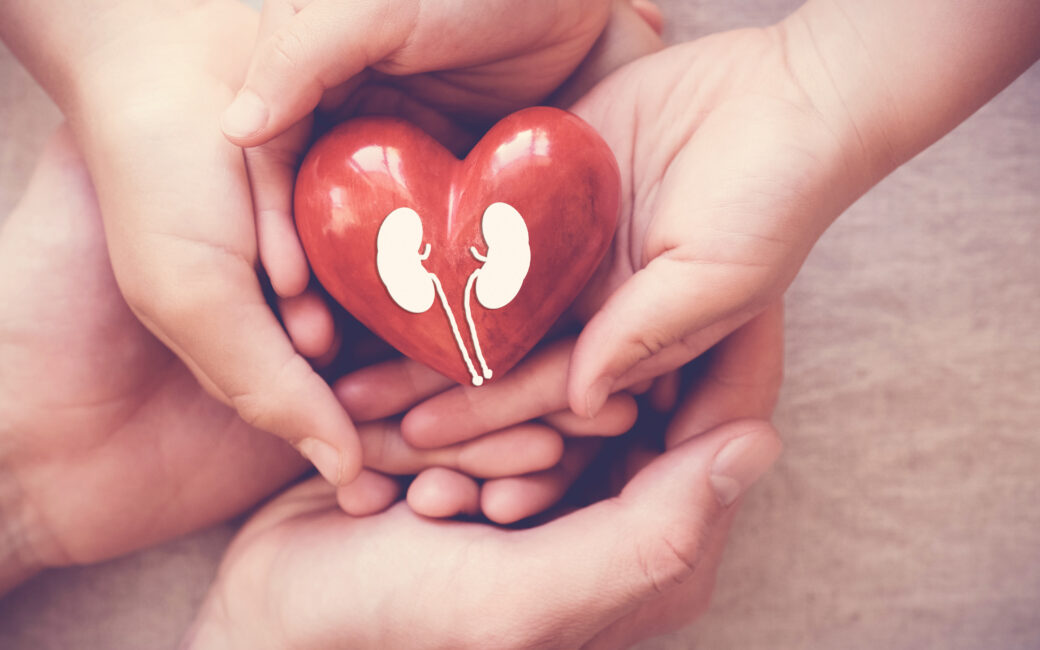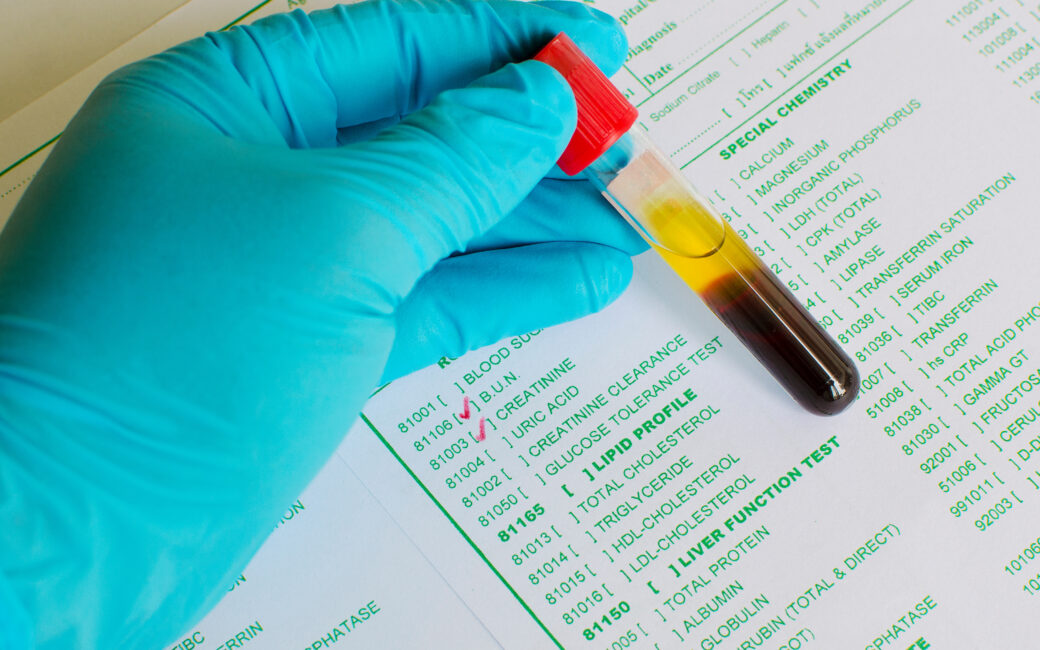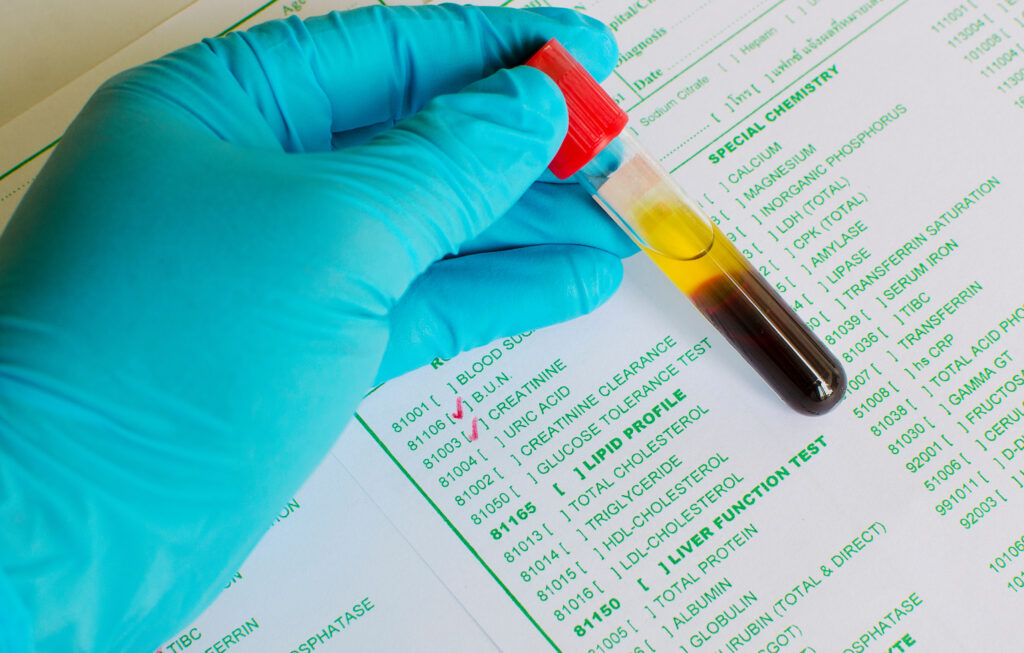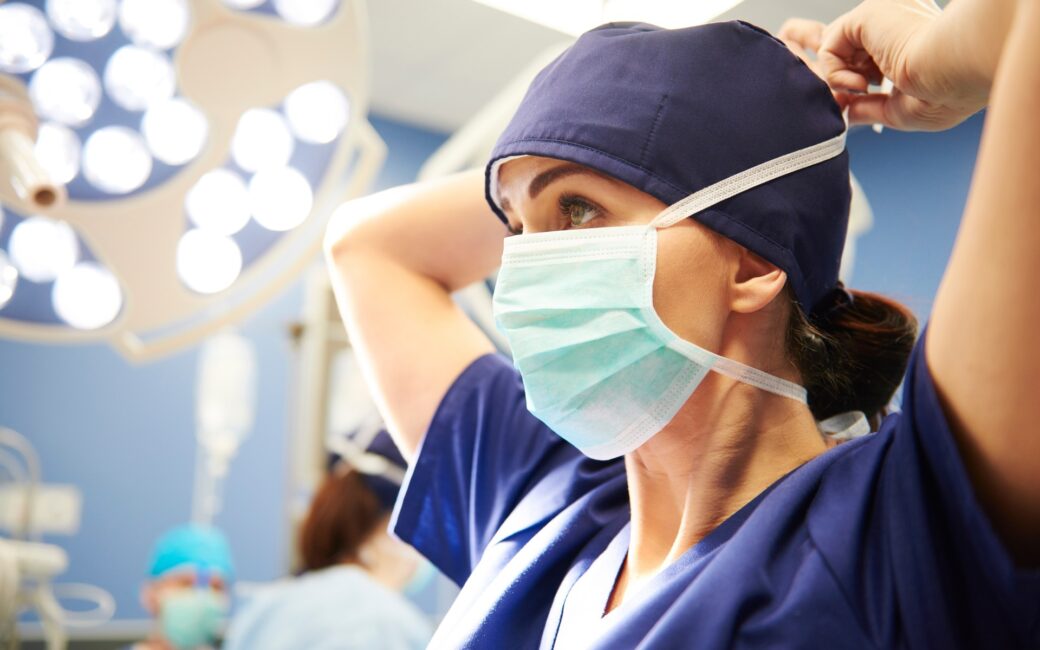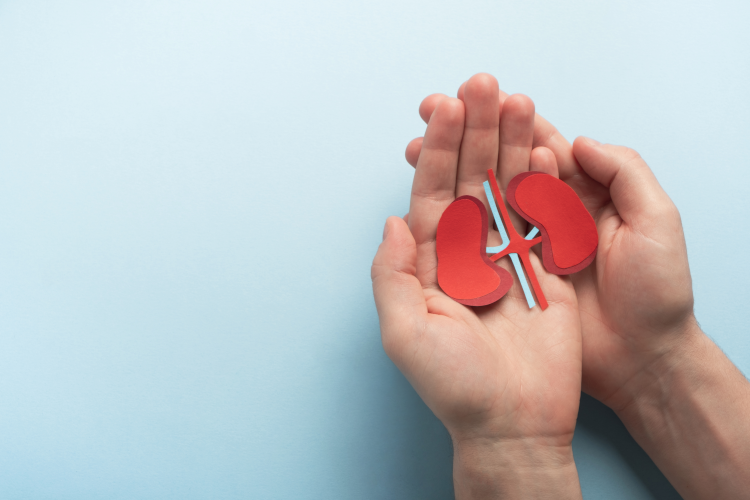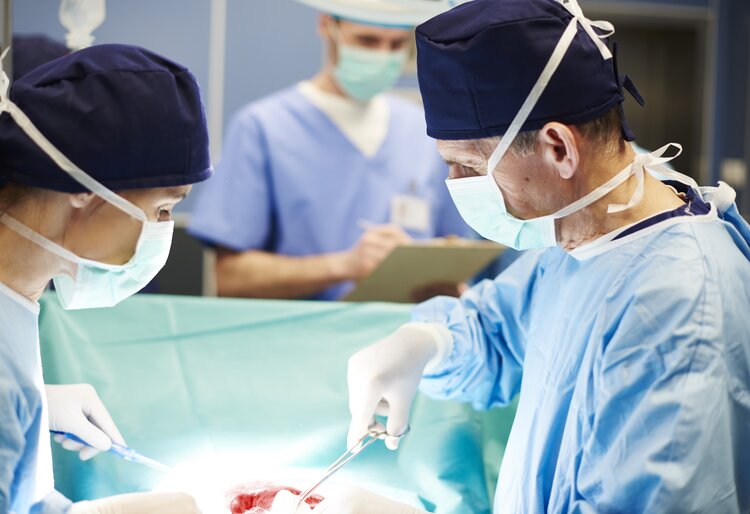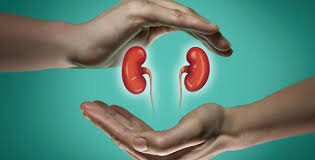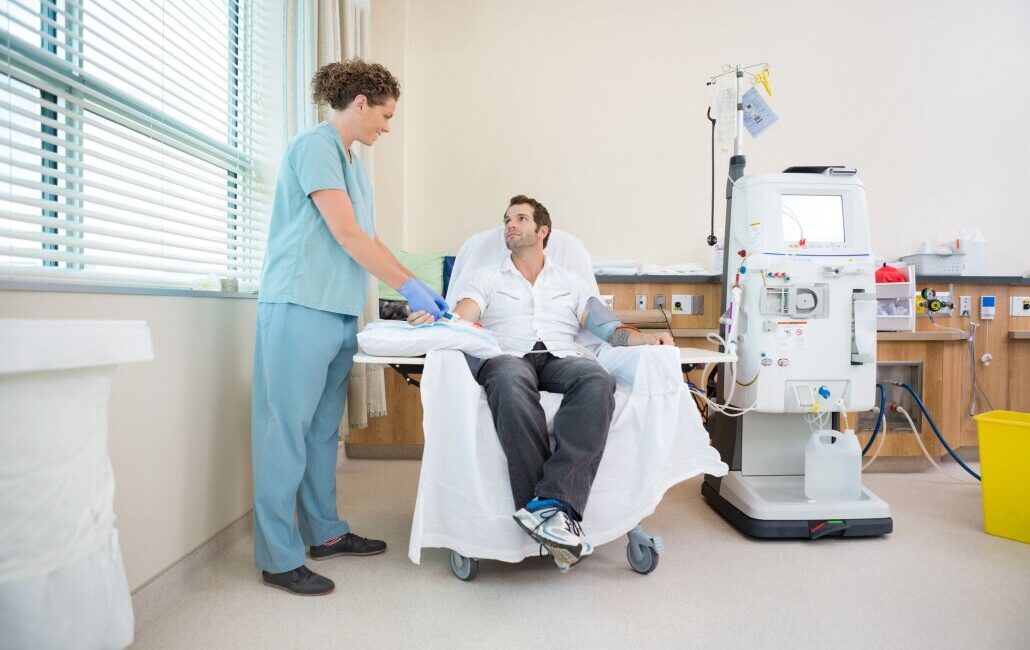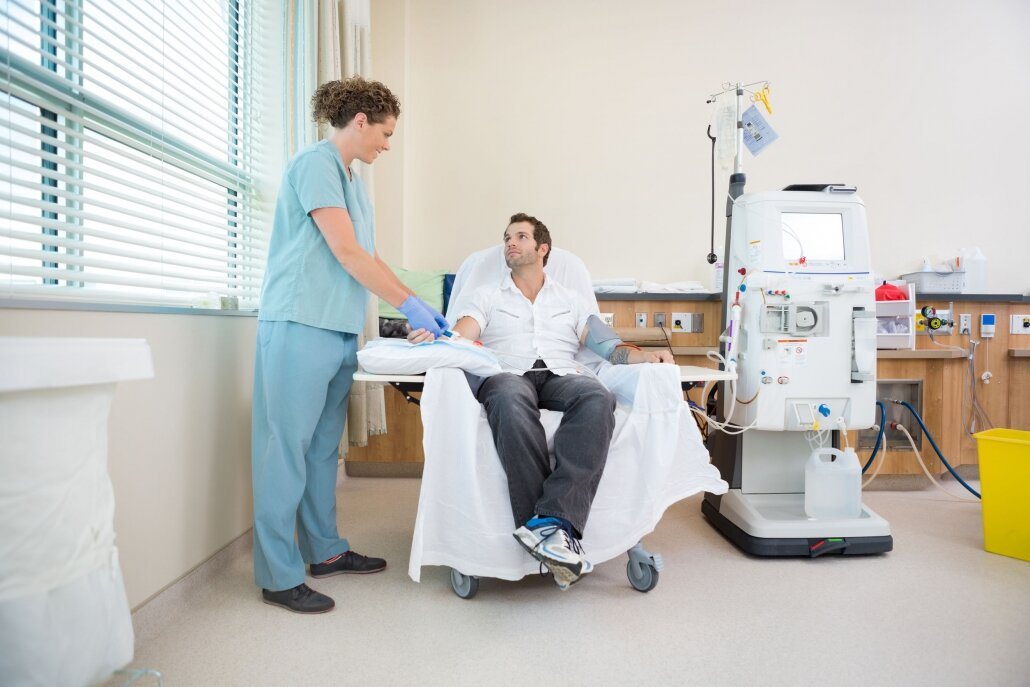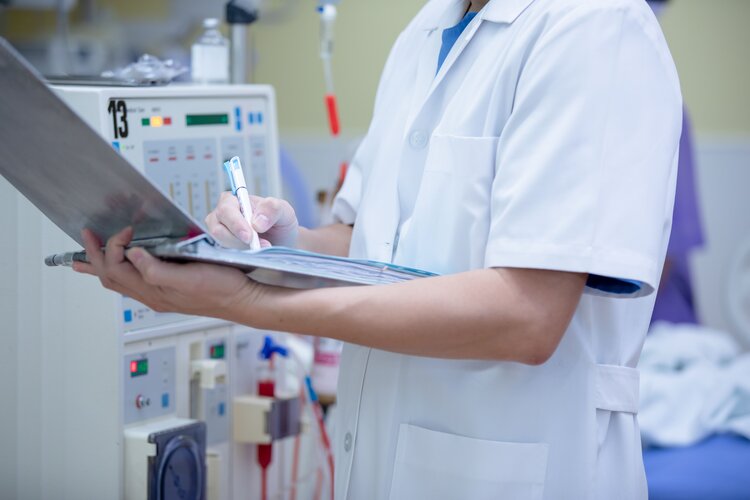
WHAT CAN YOU DO TO GET THE MOST OUT OF YOUR DIALYSIS EXPERIENCE?
- Follow your dialysis treatment schedule—and take your medications exactly as prescribed by your nephrologist (kidney doctor).
- Be engaged in your dialysis treatment—and communicate with your treatment team about any changes in your health or how you feel. You know yourself best, so your input helps ensure that your treatment fits your life.
- Communicating with your family about your treatment is essential—keeping your family and friends in the loop regarding your condition and dialysis treatment plan will assist with much-needed support from your family and friends along the way.
WHAT SHOULD I BRING TO THE DIALYSIS CENTER?
On the days you have dialysis, you’ll be sitting in a dialysis chair for about four hours, so you’ll want to wear something comfortable. You may feel cold during the treatment since your blood is circulating outside of your body. Warm socks, a sweatshirt or sweater, and perhaps a hat can help you keep warm. Take note of where your dialysis access is located. If you have a graft or fistula in your arm, be sure your sleeves are loose enough to roll up. If you have a catheter in your chest, be sure to wear a shirt that opens in the front.
Find out ahead of time if you can bring a blanket and pillow. In addition to warm clothes, you may also want to bring a book or any other project that you’d like to work on while you are dialyzing. Since many centers have televisions, you may want to bring earphones so you can hear the sound. Also, check with your center to see if it has internet access. If so, you may want to bring your laptop.
WHAT CAN I DO DURING DIALYSIS?
Reading, watching television, listening to music, paying bills, making your grocery list, catching up on work and sleeping are just a few of the things you can do while you’re dialyzing. You can also visit with the other people dialyzing around you. Many people on dialysis enjoy going to a dialysis center for treatment because it gives them time to create friendships with other people who are going through the same things they are. Depending on your center, there may also be times when a staff member puts in a video for patients to watch or leads a group game such as Bingo for everyone who wishes to play during dialysis.
ENTERING THE DIALYSIS CENTER
When you enter your dialysis center for the first time, you’ll generally be greeted by a receptionist who will take you to meet the facility administrator or manager of the dialysis center and other members of your dialysis health care team.
Your health care team consists of renal professionals including nurses, technicians, a registered dietitian, and a social worker who specializes in treating dialysis patients. On your first visit, you’ll fill out paperwork and insurance forms, and you’ll need to bring your insurance card and driver’s license so copies can be made. You’ll also have plenty of time to ask questions you may have about the forms you’re completing, the dialysis center, your health care team, the dialysis process, or anything else that comes to mind. Once you are done filling out the paperwork, you will sit in the waiting room until your dialysis nurse or technician calls you back to get ready for your treatment.
WHAT HAPPENS BEFORE DIALYSIS TREATMENT BEGINS?
Next, you’ll meet one of your dialysis nurses who will weigh you before you start the treatment. Then, you’ll wash your arm if this is where your vascular access is located. Your dialysis nurse or technician will show you how to wash your vascular access until you know exactly how to do it. Once you know how you will do this step yourself. When your access is clean, you’ll be escorted to a treatment chair that has been prepared for you. Every chair is cleaned thoroughly before each new patient sits down. When you get to your chair, the nurse will check your standing and seated blood pressure, listen to your lungs, take your temperature and check your heart rate and other vital signs. Then, you’ll have a few minutes to get settled in your chair with your blanket and pillow, if you have them. Each chair generally reclines and has a tray on the side to set the things you brought with you so everything is easy to reach.
DIALYSIS TREATMENT BEGINS
Once you are in your chair, you will be connected to the dialysis machine. If you have a fistula or graft, you will be connected through your vascular access with two needles connected to the tubing. Your nurse will wipe your vascular access with a solution to kill any bacteria. Then, two needles will be used to connect you to the machine. An arterial needle will take your blood through the dialyzer or artificial kidney, while a venous needle will return your blood to your body. You can ask for numbing medicine to be put on your access before you get the needles inserted if the needle sticks bother you. Most people get used to the needles and are not bothered by them after a while. If you have a catheter in your chest, the dialysis tubing will be connected to your catheter.
Once you are connected to the dialysis machine, your technician will start the dialysis treatment. The machine will move your blood through the dialyzer or artificial kidney to be cleaned and then returned to your body. If you’re doing treatment during the day, the process generally lasts four hours; if you’re doing in-center nocturnal dialysis treatment, you’ll be dialyzing for about six to eight hours while you sleep.
DURING DIALYSIS TREATMENT
During a four-hour dialysis treatment, your blood will go through the dialyzer 15 to 20 times, and only about 1-1/2 cups of your blood will be outside of your body at any time.
While you should not feel pain or discomfort during dialysis treatment, let a member of your health care team know right away if you feel dizzy or experience cramping. Dizziness, nausea, and muscle cramps are potential side effects of low blood pressure which may happen if you reach your target weight (dry weight) and fluid is still being removed or if fluid is removed too fast. Your renal dietitian will advise you on how much fluid to drink each day and remind you which foods count as fluid. It’s important to stick to your daily fluid limits to avoid gaining too much fluid weight between treatments as trying to remove too much fluid can contribute to low blood pressure and cramping during dialysis.
WHY ARE THERE ALARMS DURING DIALYSIS?
One of the most obvious things you may notice during your first few treatments is the sound of alarms that go off from time to time. The dialysis machine continuously monitors the pressures created by your blood inside the blood tubing and dialyzer. It also monitors your blood pressure, blood flow, treatment time, and the mixture and temperature of the dialysate, the solution inside the dialyzer that cleans your blood. If any of these measurements go out of range or when the treatment is finished, the machine sounds different alarms to alert your nurse.
WHAT HAPPENS WHEN DIALYSIS TREATMENT IS OVER?
When your treatment is finished, the staff will use a saline solution to rinse the blood that is still in the tubing and dialyzer back into your body. Your technician will then shut off the dialysis machine, take out the needles and disconnect you from the machine. You or the technician will apply pressure to your access site to prevent bleeding and apply dressings on each needle insertion site. Before you leave, your nurse will take your blood pressure and weigh you one more time. This post-treatment weight will be used for the next treatment to help determine how much fluid to remove. After that, you’re free to go. If any unexpected bleeding occurs, put pressure on the site and notify your dialysis center or kidney doctor right away.
OTHER DIALYSIS TREATMENT OPTIONS
If in-center hemodialysis doesn’t fit your lifestyle, there are other dialysis treatment options. Talk to your doctor to see if another dialysis option can work for you. If you’d like to do your dialysis treatments in a dialysis center with nurses nearby to assist you, in-center self-care hemodialysis may be right for you. If you’d like to do your dialysis treatments in a center while you are sleeping, in-center nocturnal hemodialysis may be right for you.
It’s important to note that not all treatments work for all patients. Talk to your doctor if you’re interested in trying a certain type of dialysis treatment.
CONTACT MIDWEST NEPHROLOGY ASSOCIATES TODAY
Have any questions or concerns? Our dedicated team of physicians and certified staff are here to help answer all your questions and can help set up an appointment for you or a loved one. Contact Midwest Nephrology Associates for more information on Kidney Cancer and for help finding a treatment that works best for you.
